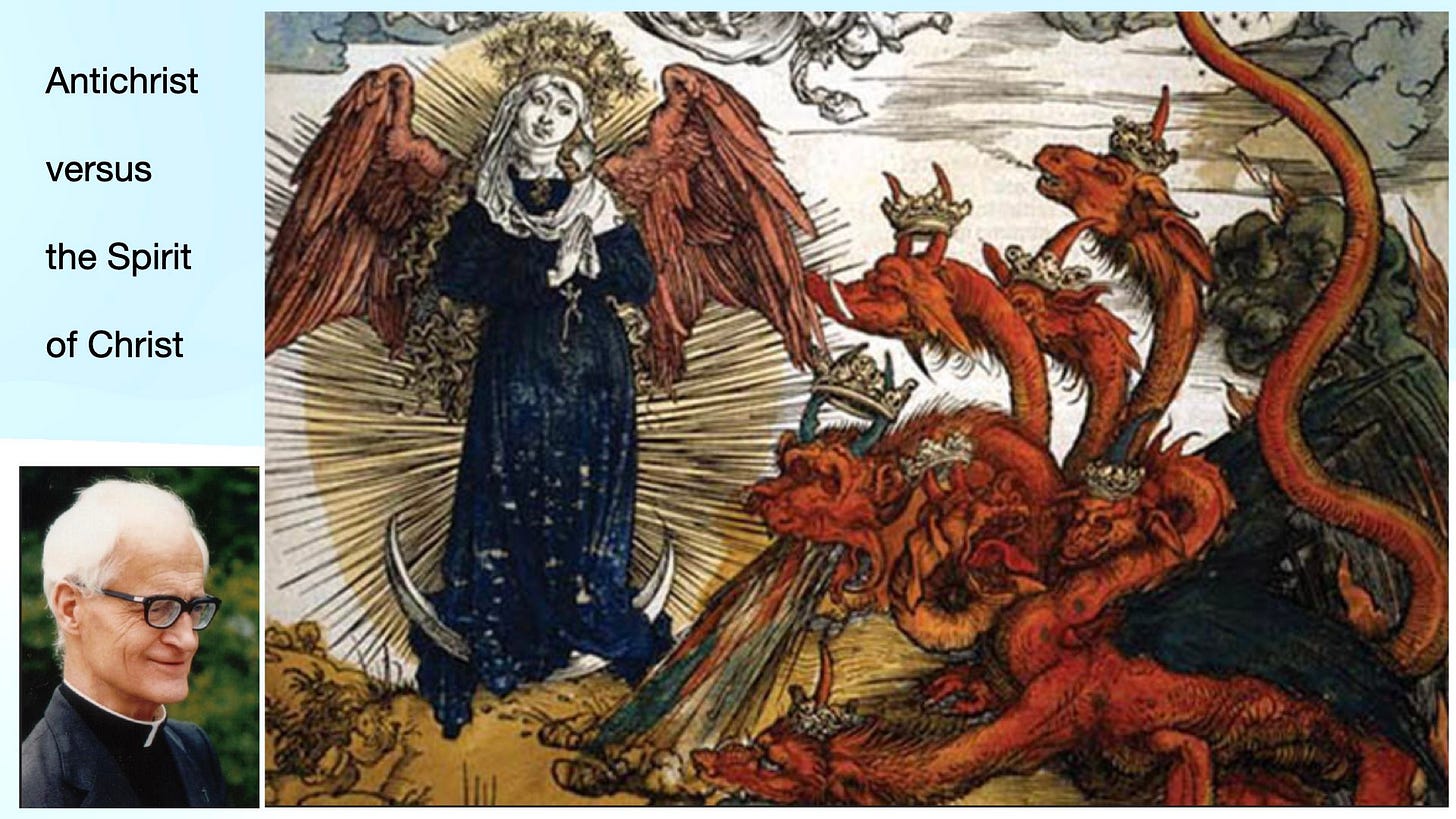Antichrist versus the Spirit of Christ
1 John 2:22-28 - Tuesday, January 2, 2024, Christmas Week
In 1995, a famous French biblical scholar, Ignace de la Potterie, published an article titled: "The Woman of Revelation and the Antichrist". In that article, we learn that the common understanding of the meaning of "antichrist" was a political one. Thus, the people of the Church throughout centuries saw in
every persecutor - from Nero to Stalin - a personification of the antichrist. But, then the author writes: "If we want to know what the Antichrist means to John, we must look at his first two epistles".
In today's portion of reading from the first letter of John, we find this statement: "Who is the liar but he who denies that Jesus is the Christ? This is the antichrist, he who denies the Father and the Son" (1 John 2:22). Although, all three John's letter does not tell us much about the author, the time of writing, and the historical background, we can at least know that John was writing to a community of Christ's believers that experienced a crisis. Some of its members left the community (1 John 2:19) and it seems that the reason for their departure was their rejection of the basic tenet of the apostolic proclamation that Jesus is the Christ. Thus, John, who coined the term "antichrist", used it to refer to those who upheld and spread heretical teachings within the Christian community.
In order not to be led astray by the first heretics of the Christian movement, John advises the members of the community to hold on to the apostolic teaching: "Let what you heard from the beginning abide in you" (1 John 2:24). This includes the fundamental proclamation of the Gospel that Jesus is the Christ. John also stresses the importance of the Holy Spirit in keeping Christ's believers on the path to the right understanding of Jesus' true identity. The author speaks about "the anointing" that the members received at the moment of their entry into the Church. "The anointing" refers to the gift of the Holy Spirit sent upon the Church by the glorified Christ from the Father.
In ancient times, the prophet Jeremiah prophesied about a new covenant that would be characterised by direct knowledge of the Lord. We read that in those days "And no longer shall each one teach his neighbour and each his brother, saying, ‘Know the LORD,’ for they shall all know me, from the least of them to the greatest, declares the LORD." (Jer 31:34). We find a similar statement in our letter: "the anointing that you received from him abides in you, and you have no need that anyone should teach you" (1 John 2:27).
Jesus, during his last discourse before his departure, promised his disciples the gift of the Holy Spirit who would teach us all things and bring to our remembrance all that Jesus told us (see John 14:26). In the first John, we read that "the anointing" teaches us about everything (1 John 2:27).
John ends his exhortation with a call to faithfulness. We are challenged to hold on to the apostolic testimony of the Church and depend on the guidance of the Holy Spirit. Jesus is the Christ and the one who establishes a deep relationship with the Spirit of the risen Christ has the assurance of walking in truth (see John 16:13).




